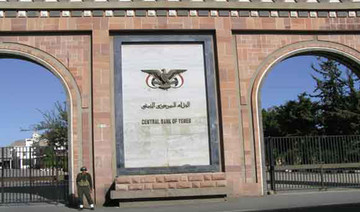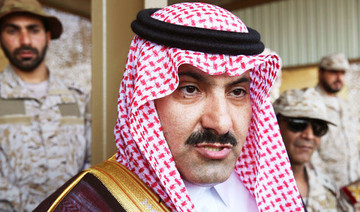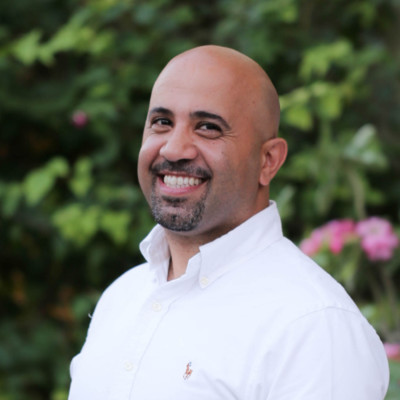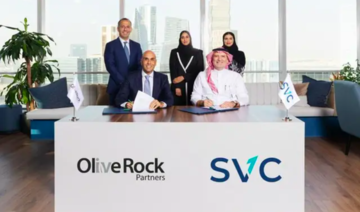DUBAI: The meeting of the Organization of Oil Exporting Countries (OPEC) in Vienna last week confirmed what some in the oil industry have been saying for a while: A new global energy dynamic is being created by the three-way relationship between Saudi Arabia, Russia and the US.
After a first day of deadlock over the output reduction needed to stabilize global crude prices, it took a second-day intervention by Russia to back up Saudi calls for a substantial cut, which was duly delivered.
That brought to a conclusion probably the most controversial OPEC meeting of recent times, with a crop of geopolitical factors — Qatar’s planned withdrawal from the organization, sanctions on Iran and the threat of global trade wars — all in evidence.
Although the Americans were not formally in attendance at Vienna — being neither members of OPEC nor the amorphous “OPEC+” that includes Russia and some other oil producers — their influence was all-pervasive. As the new holders of the title of “biggest producers in the world,” the US reaction was on everybody’s mind in Vienna as they calculated the output reduction needed to halt a worrying slide in prices.
Dubai-based energy expert David Hodson, managing director of Blue Pearl Management, said: “Saudi Arabia dominates OPEC, but without Russia, OPEC is not nearly as relevant. And the US industry has proved it is getting better and better. Those three producers are calling the shots worldwide.”
But in many ways, it is simply the modern oil industry’s eternal triangle. Imperial Russia was the first to develop the industrial use of oil as a fuel resource, drilling what is recognized as the first oil well in the 1840s in the Caspian region.
The Americans followed soon after, first in the eastern US and, later, in Texas and California, as oil fueled the transport revolution of the early 20th century, especially with advent of the internal combustion engine.
Saudi Arabia came along relatively late, with the first serious discovery in 1938 by what would become Saudi Aramco. But by the 1970s, the Kingdom was the biggest producer in the world and able to dominate the global industry via OPEC.
However, the dynamic of that three-way relationship has been radically altered in recent years by the emergence of the US shale industry. From mega-fields such as the Permian Basin in Texas, American technological know-how and financial resources have combined to extract oil in high numbers from areas previously deemed uneconomic.
That has made the US the current biggest oil producer in the world, and a net exporter of oil for the first time in 75 years. As a result, the US has a vital interest in what happens in global energy markets, especially under a president like Donald Trump, who is keen to keep US voters happy with cheap fuel for their cars.
Now those three produce more oil between them than the rest of OPEC combined, and are able to decide the price of oil by opening or closing the taps at will. The challenge, however, is that the will of three independent sovereign states rarely acts in unison. Each has the interests of their populations to consider, as well as the role they play in the “great game” of global politics.
Events at the OPEC meeting in Vienna two years ago constituted a profound shift in oil policy. There, for the first time, Russia and Saudi Arabia masterminded the “declaration of cooperation” aimed at halting the fall in oil prices that had begun in 2014. Khalid Al-Falih, the Saudi energy minister, developed a close working relationship with his Russian counterpart, Alexander Novak.
That relationship was endorsed at the highest level in March this year when Saudi Crown Prince Mohammed bin Salman took time out from a tour of the US to further strengthen “cooperation” with Russia over oil.
“We are working to shift from a year-to-year agreement to a 10- or 20-year agreement,” the crown prince said. “We have agreement on the big picture, but not yet on the detail.”
In Vienna last week, that detail was becoming clearer. OPEC members and their non-OPEC allies agreed to cut 1.2 million barrels of oil per day from their total output, with OPEC cutting the lion’s share of 800,000 barrels, Saudi Arabia taking the lead role in those reductions, and Russia expected to account for most of the balance.
The cuts deal proved there is plenty of market power in the Saudi-Russia alliance. Ellen Wald, US academic, consultant and author of recent book “Saudi, Inc.,” tweeted: “OPEC is still relevant, though not without Russia.”
The price of benchmark Brent oil jumped 5 percent on the news, well back above the $60 mark, with some experts forecasting a steady climb up to $70 in coming weeks. It lost some of those gains later, but at about $62 per barrel, the apparently inexorable decline of recent weeks has been reversed.
If the oil price continues to rise, that would appear to have accomplished the goals of the Saudi-Russian move. Both countries rely on crude exports for a large part of their foreign earnings, though Russia’s more diversified economy means that it has a lower “break-even” level than Saudi Arabia, where oil makes up a bigger proportion of state revenues.
Higher oil prices are good for the Saudi economy, of course, but it is not a clear-cut equation. Policymakers have to calculate the overall financial effect of a reduction in volume of output, even if at a higher price. Selling less at a higher price is not always straightforward mathematics, and some experts think the oil-dependent economies of the Gulf might lose out in aggregate because of the cuts agreed in Vienna.
Capital Economics, a London consultancy, said: “The OPEC deal means weaker growth in the Gulf in 2019,” and reduced its forecast for growth in gross domestic product next year, which would affect the ability of regional governments, including Saudi Arabia, to provide stimulus to the non-oil economy.
Whatever the domestic economic effects, the Kingdom and Russia have struck their deal, for at least the next six months. But perhaps the most intriguing questions are now in the third point of the triangle — the US, the newly crowned oil pumping kings of the world.
Complicating the US response is the relationship between the Trump administration and Saudi Arabia’s leadership. The US president was quick to thank the Kingdom when oil prices fell recently. How will he react if they begin to creep back to or above $70 a barrel?
American oil is being pulled by different economic and political forces. The president wants to keep gasoline prices as low as possible to woo consumers, but the US oil industry wants to maximize profits. Oil at $70 per barrel will be an incentive for US shale producers to boost the all-important “rig count” in places such as Texas and New Mexico.
David Hodson said: “Trump will continue tweeting about the need for lower gas prices, but the US shale industry is driven by commercial considerations, not elections. At the end of the day, rising prices will just be a bigger incentive for them to get on the rigs and pump it out.”
The eternal triangle — Saudi Arabia, Russia and the US — will continue to dominate the global energy business for the foreseeable future. But it may not always be an equilateral affair.


























